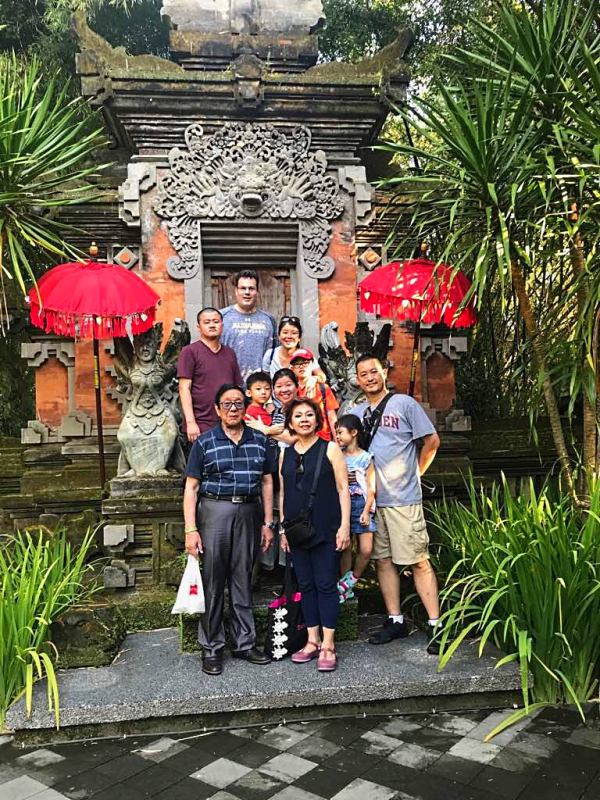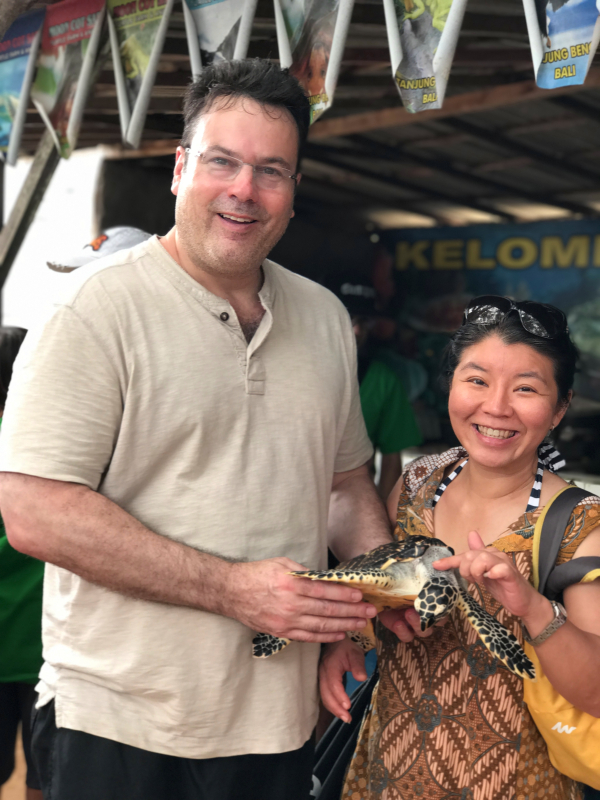My wife is from Indonesia, so we often go to visit her family.
As a result, I often have new and exotic experiences …
That picture was taken in Bali, where I first met my wife many years ago. Bali holds a lot of good memories for me, but Indonesia has more to offer than just Bali.
Indonesia is the largest Muslim country, but it also has famous Hindu and Buddhist temples as well – including the world's largest Buddhist temple – Borobudur in Java.
When you hear "Java" you think Coffee … and for good reason.
Indonesia is famous for coffee. For example, "Sumatra" is their biggest island – with “Java” coming in close behind.
They also make one of the most expensive coffees in the world … Kopi Luwak.
It's a "special" coffee … made using a very particular process.
In traditional coffee production, the cherries are harvested and the beans are extracted. The beans then get shipped to a roaster, ground into a pulp, and brewed by a barista at your local Starbucks.
In contrast, with Kopi Luwak, something different happens.
The coffee cherries are still harvested, but by wild animals.
Specifically, they’re harvested by the Asian Palm Civet, a small, cat-like animal that absolutely loves the taste of those cherries.
But, if the civets eat the cherries, how can they still be used to make coffee?
Well … that's the gross part.
The civets eat the coffee cherries, but their digestive tract can’t effectively process the beans, only the flesh surrounding them.
When the partially digested, partially fermented beans are eventually excreted, coffee producers harvest them. The beans are then cleaned, roasted, and used to make astonishingly expensive (“with retail prices reaching up to $700 per kilogram”) coffee.
Now is the coffee that mind-blowing to warrant a price north of $300 a pound?
No, not really. In fact, many critics will openly call it bad coffee, or as Tim Carman, food writer for the Washington Post put it, "It tasted just like…Folgers. Stale. Lifeless. Petrified dinosaur droppings steeped in bathtub water. I couldn't finish it."
To be fair, the Luwak coffee industry is an experience. When I toured a plantation near Ubud, Bali, a smiling tour guide greeted and led me on an in-depth exploration of the forested property, where I was allowed to immerse myself in the various spices, roots, beans, and civets used to produce this one-of-a-kind coffee. Here is a video I shot of the process.
via YouTube.
If you think about it, I paid a premium to drink exotic cat poop coffee, but I certainly wouldn't drink coffee made from people poop (or even domestic cat poop).
So, why would I buy the coffee then?
It’s the story that allows this not so awesome coffee to fetch awesome prices. People are paying for the experience, not the commodity itself.
The same is true when you buy Starbucks. The coffee at 7-Eleven is cheaper – and Consumer Reports tell us that McDonalds coffee is better.
Nonetheless, I'd still rather drink at Starbucks.
We live in an Experience Economy.
Can you think of anything else where you're buying the story/experience without actually getting a superior product?



I have no tasted the Cat Poop Coffee till yet. This looks such a yummy thing after reading this article and I would love to find a chance to drink this coffee after my https://www.goldenbustours.com/lasvegas-tours/